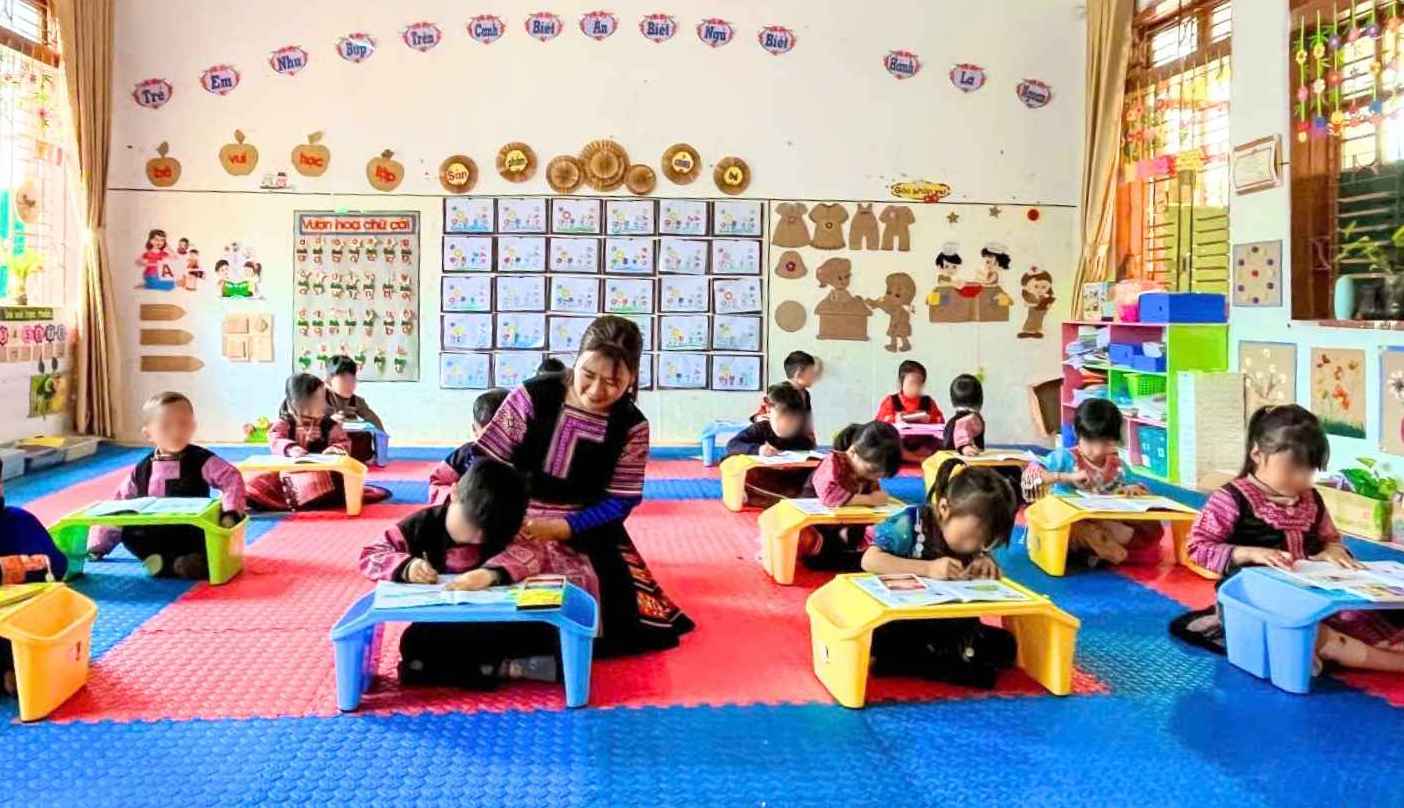The feelings of preschool teachers in mountainous areas due to income pressure
For preschool teachers, especially in mountainous areas, income is always a big concern besides the inherently special professional pressures. In recent years, many teachers have persistently stayed in school and class despite many shortages in living conditions.
Therefore, information from 2026 about salary adjustments and adding specific salary coefficients and allowances for the teaching staff is giving rise to many new expectations.
Ms. Du Thi Vanh - a teacher at Hoa Dao Kindergarten (Long Phieng commune, Son La) - has been in the highlands for nearly 8 years, sharing that her current income is still quite modest compared to the amount of work that preschool teachers have to take on every day.
"Caring, raising and teaching children requires a lot of time and effort. We started our working day early in the morning and only returned home late in the afternoon. However, the salary is sometimes not enough to cover all the living expenses that are increasing" - she confided.

According to Ms. Vanh, the biggest difficulty is the problem of spending in the family. All expenses such as travel, food, childcare... must be considered carefully. "Just when my child is sick or the house has something unexpected, I immediately worry. On weekends, I still have to take advantage of doing small things like growing vegetables and growing corn to earn some extra income" - she shared.
She said that living in a highland area, the price is not cheap, many items have to be moved from the lowlands, so the cost is higher. "In fact, every time I want to buy something for my child or repair the house, I have to think a lot" - she said.
The pressure comes not only from the economy but also from spending less time on the family: "There are days when teaching at night, it is very tiring but I still have to worry about food and water, raising livestock and poultry. Many times I feel sorry for myself, but my family understands and supports me, so I have more motivation".
Although life is still difficult, Ms. Vanh expressed that what makes her attached to the job is her love for children. "Every day I see my students improve and become a little more obedient, I feel that is also a great compensation. I just hope that the lives of preschool teachers will be increasingly cared for so that we can work with peace of mind" - she said.
Therefore, when hearing the news that from 2026 there will be salary adjustments and additional special coefficients, Ms. Vanh felt extremely excited.
"Not only me but many colleagues in the highlands also feel like they are being given more confidence. Those improvements are not just about income, but also a recognition of our silent efforts every day," she said.
She hopes that the new policy will help reduce financial pressure, while creating conditions for teachers to contribute more. In particular, she hopes that the special salary coefficient and allowances for the highlands will be adjusted to suit reality, better supporting travel, living and boarding work.
motivation and recognition for the teaching staff
Similarly, having been in the profession for more than 14 years, Ms. Nguyen Thi Lanh - a teacher at Dakrong Kindergarten No. 1 (Quang Tri) - said that the current salary if there are people dependent, it will be very difficult to balance spending.
According to her, the characteristics of preschool teachers are completely different from other levels of education, when teachers have to pick up and drop off children early in the morning, take care of and teach them all day, from meals to bedtime.
"We don't have time to take a break between classes or at noon like other levels. Meanwhile, many teachers at border schools have to go very far to get to class. I just come home late at night, I don't have time to work extra to increase income or increase production" - she expressed.

According to Ms. Lanh, salary adjustment from 2026 not only helps improve life but is also a source of encouragement for teachers to continue to stick with the profession. "We hope that the new policy will be truly practical so that preschool teachers can make a living from their profession and wholeheartedly devote themselves to their students" - she said.
Ms. Lanh said that for many teachers in mountainous areas, the new salary is not only an additional income, but also an affirmation that their efforts are being recognized as worthy - a motivation to continue to stand firm in the high mountains, where the children are still struggling but also full of love.











